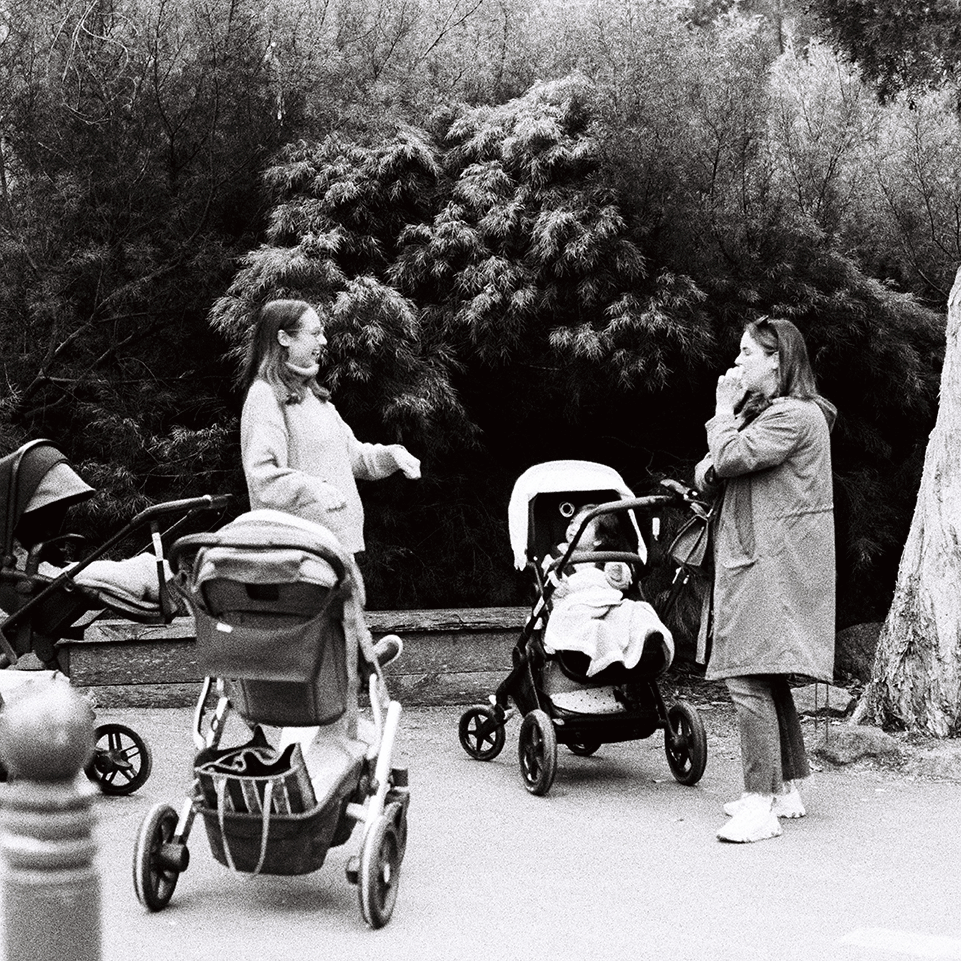What to know beyond “wait six weeks”.
Motherhood and sex. Two topics not often spoken about together, which is ironic because one leads to the other. Maybe sex after birth isn’t spoken about with new mothers because it doesn’t seem to fit with the idea of a newborn bubble. Like a lit fireplace in the middle of summer. True for no one more than a new mum herself. It’s not necessarily the wholesomeness of a new baby putting you off, but the soreness, hormonal slump, vaginal discharge, fatigue, cramps and lack of showers that are the birth aftermath doesn’t exactly make you feel like a sex kitten. The problem with it not being talked about, is that it makes it hard to know what to expect. So, we’re talking about it, and we asked certified Australian sex coach Georgia Grace for advice on how to get yourself back in the mood. When you’re ready, of course.
How long after birth can you have sex?
Your doctor has told you no sex for (at least) six weeks, because your body needs time to heal. But in no way does that mean you are fully “healed” or ready for sex when you hit that six-week mark. You should return to sex when you feel ready. For many women this is between one to three months of birth, but can take much longer. It’s rare for a new mum to feel hot, and feeling good about yourself is all part of wanting to have sex. There is so much rapid change after birth — physically, emotionally, mentally, hormonally and in how your day runs — it’s a lot to get your head around. You’re also in constant contact with your baby, so it’s common to feel all touched-out. It’s also very common for women to have no sexual desire while they are breastfeeding, and for good reason. Nursing releases oxytocin, which helps you feel connected to your baby, but suppresses your libido. Keeping your sex drive low is your body’s way of preventing another pregnancy before you’re body is ready, so it’s all happening for a reason.
Do it for yourself
Anxiety is one of the worst things for a libido, so try not to worry about not having one. Trust that you will feel like having sex again, but it might take awhile. Taking care of yourself and getting postpartum support is not only one of the best things you can do for mental health, but it will help your libido return too. Getting time to have a hot shower and wash your hair, napping while someone else organises dinner, getting foot rub — it all helps to make you feel good and in time, these things will help you desire and have the energy to return to your sex life. Sex Coach Georgia Grace also encourages self exploration. “Your experience of pleasure in your body has certainly changed, and this may mean you’ll have to spend time relearning what feels good for you,” says Grace. “A great place to start is masturbation. Explore sensation in your body, follow pleasure, become curious and learn about how and where you like to be touched.”
Warming back up
As you work towards becoming more ready for sex, Grace says to take it off the table. “This may sound counterintuitive, but often, the topic of not having sex becomes so loaded with emotion that you need to start fresh with some simple forms of intimacy or touch, with no expectation it will lead to sex,” she says. “This will allow you to feel safe knowing it doesn’t have to end in penetration, while still receiving the touch and connection that’s often desired during sex.” After all, sex is about pleasure, not penetration.
Your first time (again)
When you feel ready to attempt going the whole way, know that it just might not happen, and that’s ok. Your vaginal walls might be a lot more tender than you realised, you may be a lot dryer than pre birth or you might find your pelvic muscles are so tightly clenched that penetrative sex just isn’t possible. So when you are trying to have sex again, make sure you and your partner have time to build arousal and encourage your body (and your vagina) to relax. And have lubricant on hand. Lots of lubricant.
Be open (not like that)
Labour is a lot. Like, it’s an experience to go through with your partner. Many people feel closer to their partner as a result, and it helps both of you be a lot more open in communicating what you want from sex. If that’s not the case for you, practice. Grace encourages you to talk to your partner about what feels good, but also about your contexts for desire. “Speak with each other about the states in which you feel most aroused — the physical, emotional, psychological, erotic and spiritual,” she says. “Then speak about the things that distract you most.” This includes things like the room being messy, the dog wanting to be walked, you haven’t showered that day, you’re worried about your body or that you feel pressured. “By communicating what turns you on, what turns you off and why, you will learn more about your collective contexts for desire, and you’ll be able to connect with your body and your partner, creating the circumstances for sex that really suits you.”
Illustration by Louise Brough.








